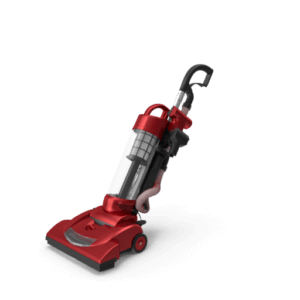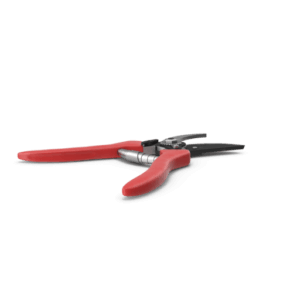You may think getting rid of mice isn’t a huge priority. How much harm could they truly cause? Unfortunately, the answer is a lot. Mice may appear to be all cute and cuddly… but don’t be fooled! They can cause some serious destruction to your home and health. This is why hiring a professional pest control company will benefit you greatly.
are mice really a threat? I’m not convinced.
The short answer is absolutely. Mice are known as nibblers, meaning they’ll put anything and everything in their mouth, even electrical wires. In fact, experts have found that nearly a quarter of house fires can be traced back to damage caused by a rodent. Although they’re small, their teeth are mighty and can puncture wood, plastic, vinyl, aluminum and even concrete if not cured properly.
Not only are they destructive, but they’re also a threat to your health. It’s estimated that rodents invade nearly 21 million homes in the U.S. every winter, and we’re not talking gifted pet mice during the holidays. A wild mouse infestation can cause way more than just a headache for families. Exposure to their droppings, urine, and saliva can cause serious illnesses such as hantavirus, bubonic plague, and salmonellosis. Their destruction combined with being carriers of the infectious disease makes these little critters a major cause for concern.
Check Out Our Commercial Church Pest Control Service
How TO Get Rid OF Mice: 5 Steps
There are a lot of homeowners out there who like to take matters into their own hands. You’re not required to use a professional rodent exterminator, but if you decide not to we want to make sure that you have the information you need. We’ve outlined 5 easy steps for getting rid of mice and making sure they stay gone.
Step 1: Find and Eliminate All Entry Points
The first step in getting rid of mice is figuring out where they initially came from. They most likely squeezed under cracks in doors, holes in insulation, unsealed basement windows, pipes, or any other dime-sized opening. These obnoxious little critters are equal parts crafty and determined. If there’s a will there’s a way and they certainly have a will.
Step 2: Conduct an Inspection
Mice, like most creatures, are most active during dusk and dawn. This is the perfect time to look for activity. If you hear scratching in the wall or follow mouse dropping trails, you should be able to find an entry point. If you’ve channeled your inner-most Sherlock Holmes and still can’t seem to find any entry points or nests, you may want to contact a professional. Our rodent exterminators have been tracking mice and rats for decades. They know exactly where to look, which spots are best for setting traps, and how to prevent future infestations.
Step 3: Sanitize Your Home
The most common cause of mouse infestations is poor sanitation. Now if you have a mouse  problem, we’re not saying that your home is a mess. Poor sanitation can simply mean leaving a few crumbs around for these little critters to find. And let’s be real, who hasn’t let a few popcorn kernels or chip crumbs fall between the couch cushions every now and then?
problem, we’re not saying that your home is a mess. Poor sanitation can simply mean leaving a few crumbs around for these little critters to find. And let’s be real, who hasn’t let a few popcorn kernels or chip crumbs fall between the couch cushions every now and then?
Kansas City Rodent Control Service
Good sanitation won’t get rid of mice, but bad sanitation will attract more. In other words, it’s never too late to take extra precautionary measures to try and avoid escalating the mouse population in your home. This means making sure to wipe down surfaces, sweep floors, clean behind warm appliances where mice like to nest, seal all food items in airtight containers, and secure garbage bins. Mice only need about 3-4 grams of food per day to survive which is equal to a few crumbs here and there. Eliminating as much food waste and residue as possible will help discourage mouse populations from growing and lure them to your traps more effectively.
Step 4: Mouse-Proof Your Yard
Aside from mouse-proofing your home, you’ll also want to mouse-proof your yard. We recommend removing all excess debris, trimming shrubbery and trees that grow close to your home, line the foundation with heavy gravel to reduce burrowing, and find all existing burrows and destroy them. Developing these indoor and outdoor sanitation habits will help protect you against future infestations. And not only will this step help with mice, but it will also help protect your home from other pests that originate in your yard.
Step 5: Call Gunter!
Still, seeing rodents? We can help! One of the most effective ways of getting rid of mice is a bait station. Since these contraptions can be a bit complicated and require certain kinds of bait, it’s usually best to leave this one to the experts. We place bait stations in areas mice and rats regularly travel — like corners of basements, kitchen drawers, and cabinets, etc. For homes with children and pets, we have locked bait boxes where only our technicians have the key to open and re-bait. We will place these throughout the home or business in areas, particularly corners and exterior entrances, where rodents travel.
How To Identify A Rodent Problem
Bonus Step: Adopt a Cat
We don’t include this step in the official mouse extermination process simply because cats can be unpredictable creatures. Contrary to popular belief, not all cats have the natural instinct to kill mice. Some cats could care less about the little pests scurrying about and instead focus all their attention on a loose string on your sofa. Of course, there are cats who love hunting mice and can easily solve your infestation problem without you having to lift a finger, well except maybe when they leave a little present on your bathroom rug…
process simply because cats can be unpredictable creatures. Contrary to popular belief, not all cats have the natural instinct to kill mice. Some cats could care less about the little pests scurrying about and instead focus all their attention on a loose string on your sofa. Of course, there are cats who love hunting mice and can easily solve your infestation problem without you having to lift a finger, well except maybe when they leave a little present on your bathroom rug…
You can research breeds that are more likely to hunt mice, but at the end of the day, it’s truly a gamble. If you’re not allergic and are open to adding a new furry family member, then it’s always worth a try. If all else fails, you can always call Gunter! We’re happy to help.
FAQ: How TO Get RId Of Mice








